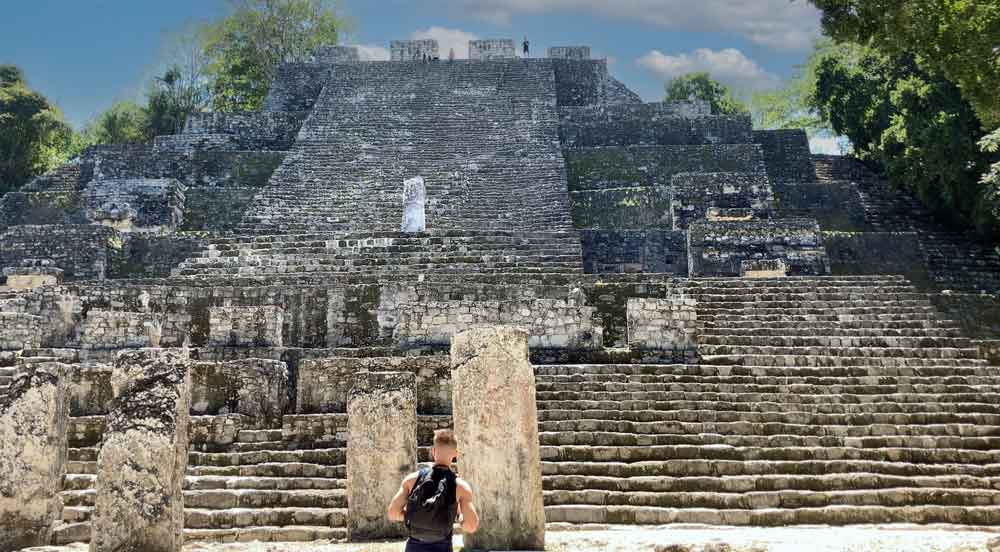
philosophy
ideas we pick up along the way
Explore how different cultures and regions have developed unique philosophical perspectives that can inform our understanding of AI and technology.
Greece
Ancient wisdom from the birthplace of Western philosophy
Philosophy from Our Time in Greece
In exploring the intersections of ancient philosophy and contemporary technology during our time in Greece, we've discovered a rich tapestry of insights from thought leaders deeply embedded in philosophy, artificial intelligence, and entrepreneurship.
Credits
Special thanks to Dr. Stamatellos, CJ Abazis, Dr. Georgios Steiris, Dr. Minas Liarokapis, Dr. Theofanis Tasis, Dr. Nikhil Arora, and legendary entrepreneur and philosopher Dimitris Tsingos.
Virtue Ethics and Practical Wisdom
Dr. Stamatellos emphasized the enduring relevance of ancient virtue ethics, particularly Aristotle's practical wisdom, underscoring the importance of self-reflection and moral character in an AI-driven world.
He described virtue ethics as psychological and theoretical, advocating an "inner necessary dialogue"—a modern interpretation of Socratic reflection where individuals critically assess their beliefs in the face of technological advancements.
This notion of Socratic questioning is central to Dr. Stamatellos' view of AI's ethical deployment. He introduced the provocative idea of a "reverse ChatGPT," a technological platform that challenges rather than comforts users, echoing the discomfort Socrates instilled in the Agora.
His vision promotes a human-centric AI that doesn't merely deliver passive answers but actively stimulates ethical reflection.
Socratic Dialogue and AI
Human Creativity and Empathy
Both Dr. Steiris and CJ Abazis echoed concerns that technology might encroach upon human essence. Dr. Steiris warned about AI potentially diminishing human interactions and interpersonal relationships, stating explicitly the need for prudence—practical wisdom—to be encoded into AI to preserve human flourishing.
CJ Abazis provided a philosophical counterpoint, suggesting that while technology can mimic the neural structures of the human brain, what genuinely makes us human transcends mere neural patterns, reflecting an innate creativity and self-awareness.
Allegory of the Cave and Digital Shadows
Professor Tasis invoked Plato's Allegory of the Cave to illustrate our contemporary situation, viewing digital interactions as shadows cast upon the cave walls. He argued passionately for digital humanism, advocating a careful and reflective integration of technology to protect human autonomy and authenticity.
Prof. Tasis emphasized the Socratic values of self-knowledge and self-care as essential for navigating an increasingly digital and automated society.
Minas Liarokapis, CEO of a robotics firm, highlighted the complexity of achieving human-level dexterity and cognition in robots. Liarokapis argued for a focused use of AI to improve human lives, particularly advocating for "embodied AI," where robots perform physical tasks detrimental to human health, freeing people to engage more fully in creative and human-centric activities.
He further suggested that true human-likeness in AI is unlikely, underscoring the uniqueness of genuine human experience and emotions.
Robotics and the Human Experience
Entrepreneurship and Greek Philosophy
In the entrepreneurial sphere, Dimitris Tsingos, founder of Starttech Ventures, discussed how Greek philosophy, particularly Stoicism, influences modern entrepreneurial thought, emphasizing the importance of prudence, reflection, and meaning in business practices.
He noted that despite the high-frequency demands of startups, philosophical grounding provides essential direction and purpose.
Synthesis and Conclusion
Collectively, these insights present a compelling narrative: philosophy not only remains relevant but is crucial in guiding our relationship with technology. As we increasingly embed AI into our daily lives, Greek philosophical traditions offer powerful frameworks to critically assess, humanize, and ethically guide technological innovation, ensuring it serves our humanity rather than diminishing it.
Our experiences in Greece affirm that ancient wisdom is not outdated—rather, it's indispensable.
Philosophy gives us the tools to ask the right questions, maintain our humanity amidst rapid technological shifts, and find a meaningful, prudent path forward.
Further Reading
Aristotle's Nicomachean Ethics
Aristotle
The Republic
Plato
Stoicism and the Art of Happiness
Donald Robertson